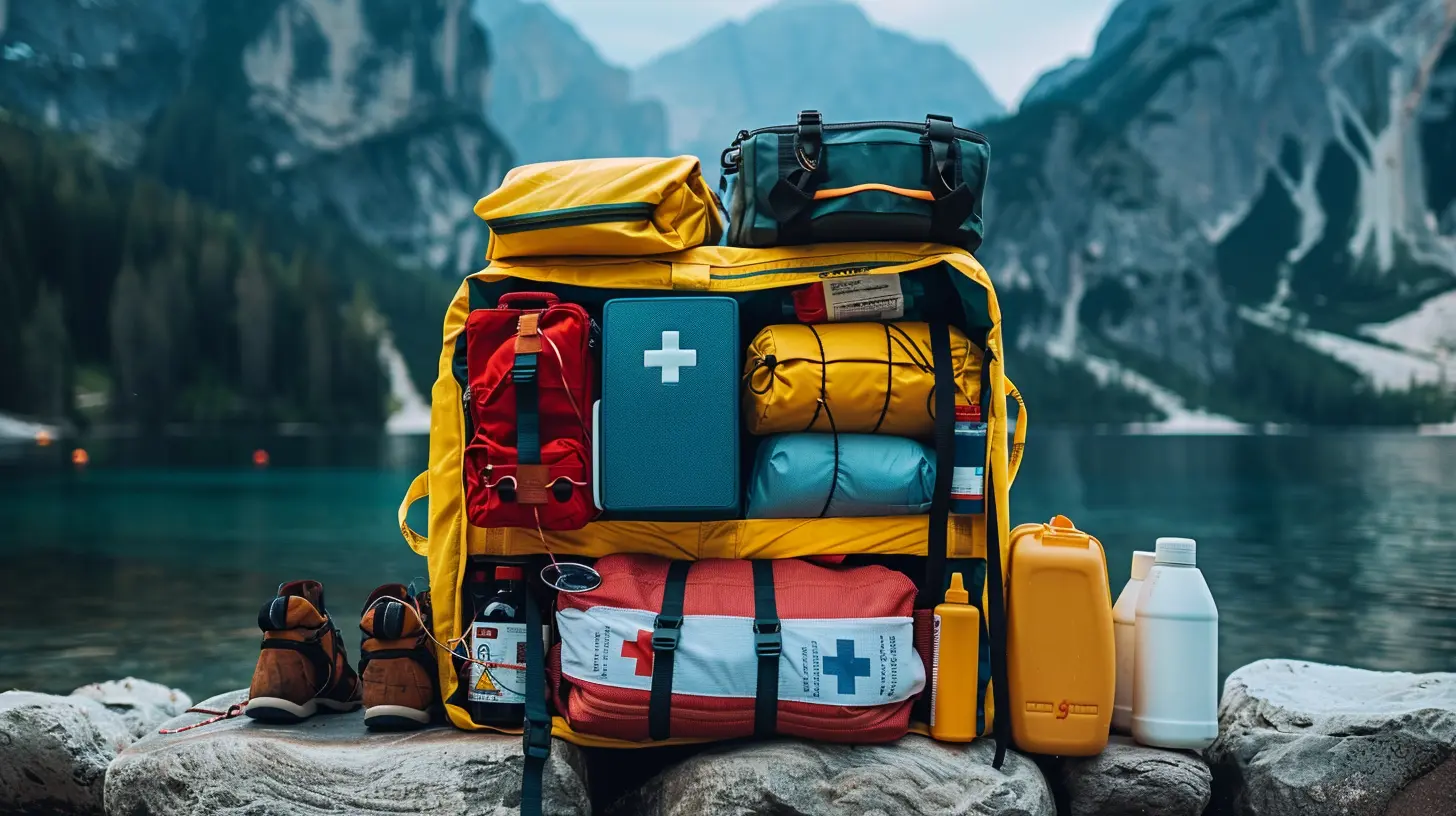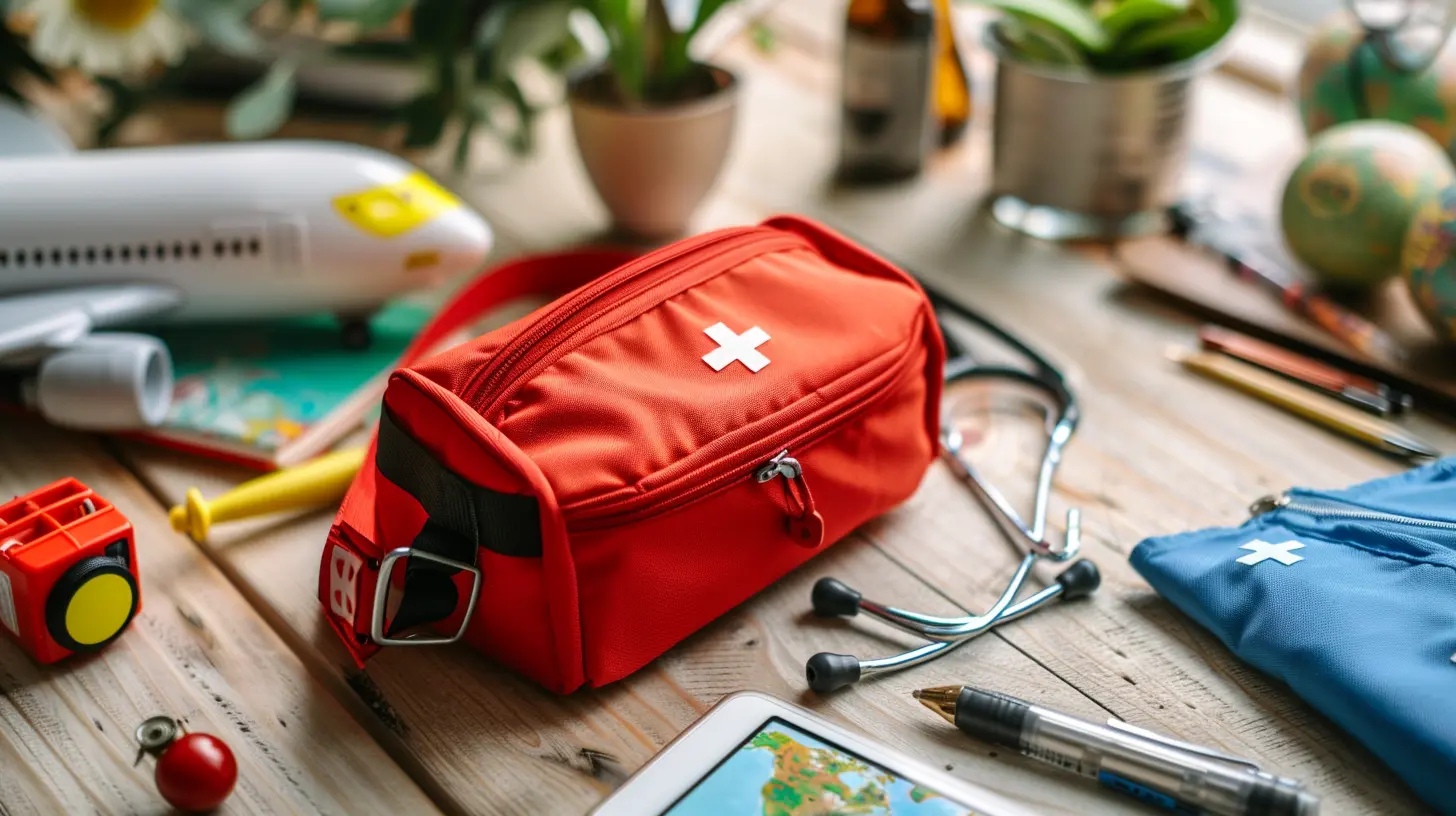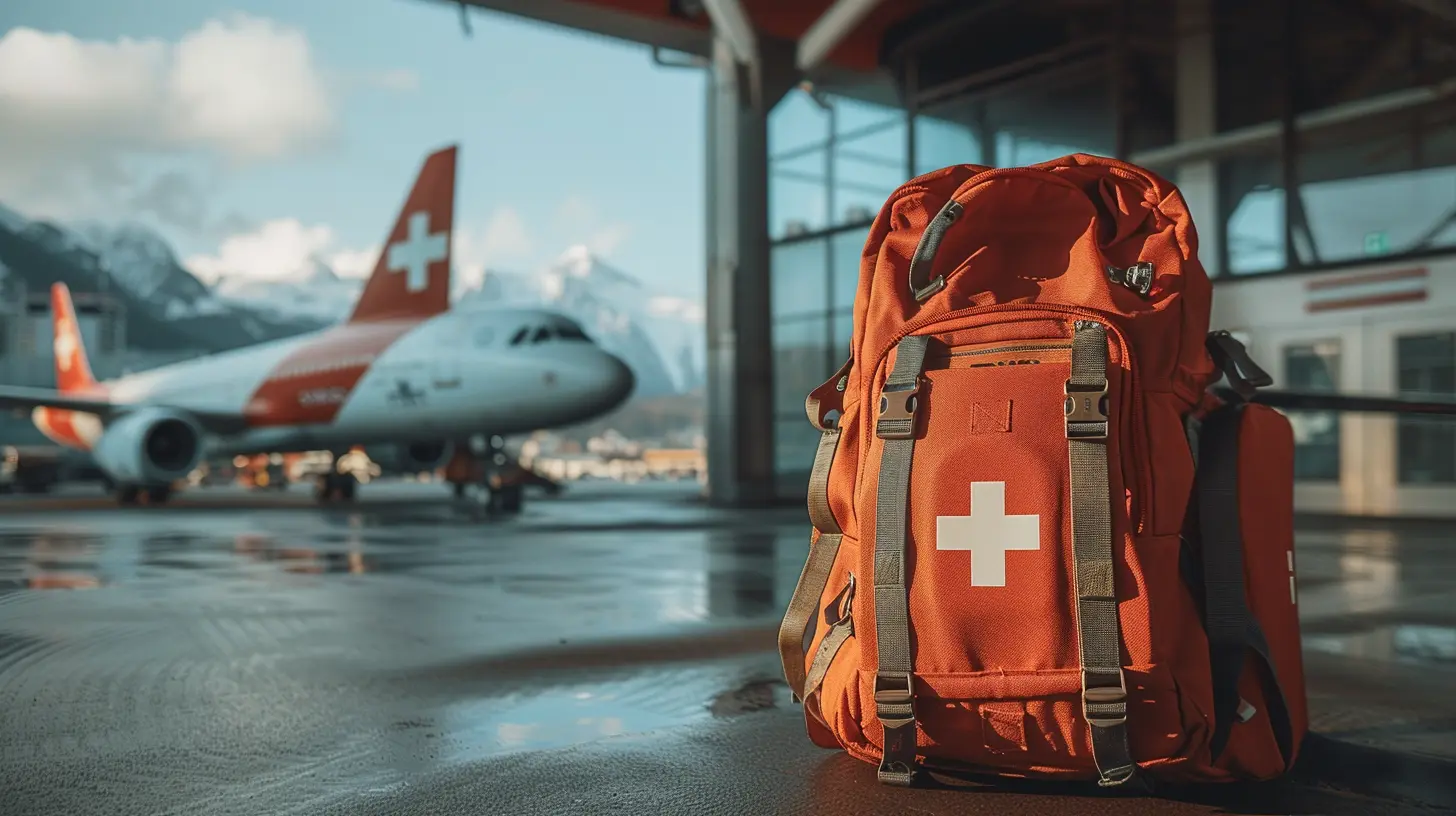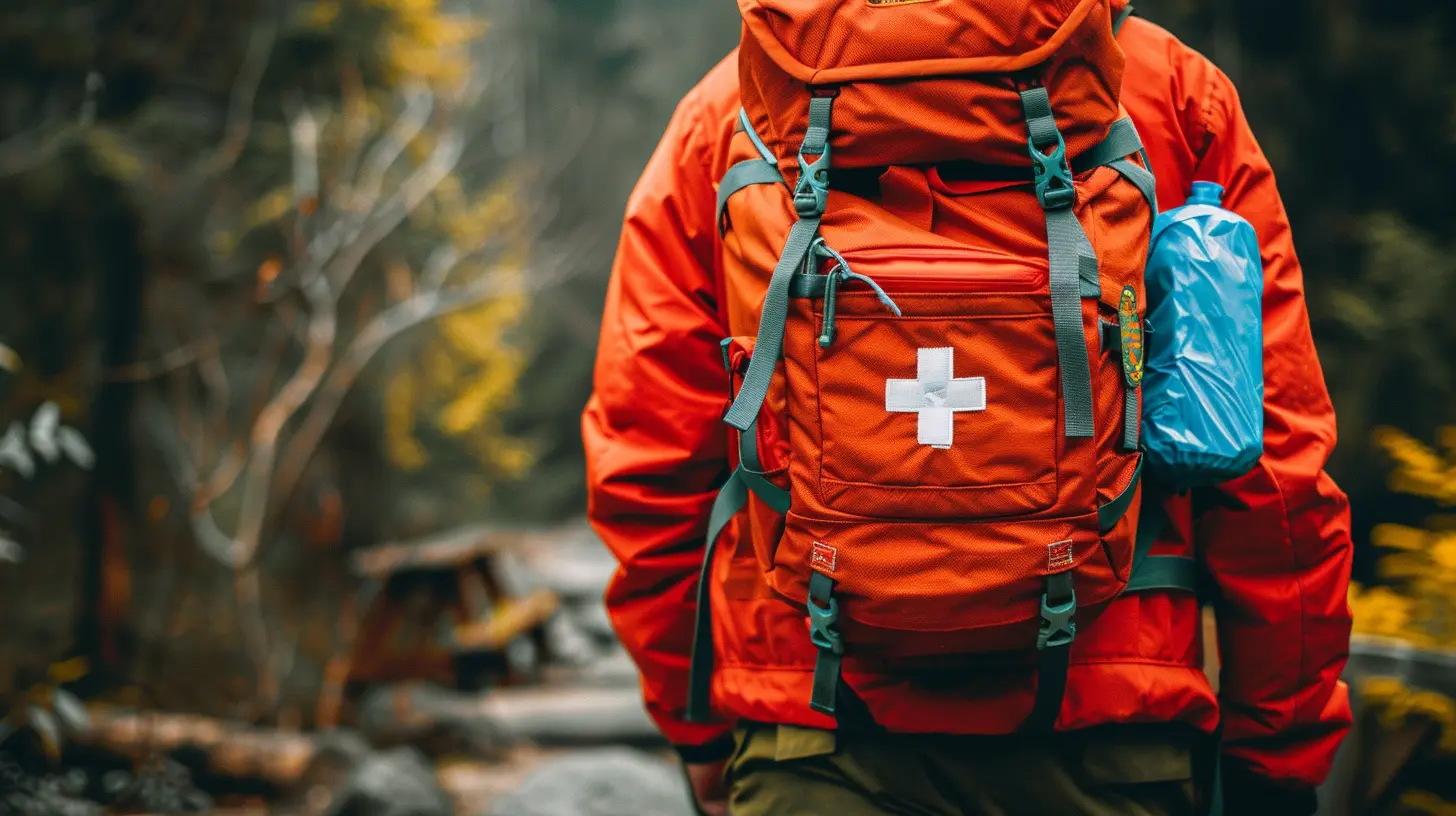How to Handle Medical Emergencies While Traveling
2 August 2025
Traveling opens your eyes to different cultures, foods, and experiences—but let’s be honest, it also comes with the unpredictability of life on the go. No matter how carefully you plan your trip, there’s always a chance that something unexpected can throw you off course. And when that “something” is a medical emergency? Well, that’s a whole different level of chaos.
But here's the good news: with the right preparation and mindset, you can face medical issues abroad with confidence. I’ve had my fair share of travel hiccups and close calls, and I’m here to walk you through everything you need to know about handling medical emergencies while you’re far from home.
Why You Should Think About Medical Emergencies Before You Even Pack
Let’s face it—no one likes to think about worst-case scenarios when they’re daydreaming about sipping cocktails on a beach or hiking through the Alps. It’s all sunshine and selfies... until something goes wrong. That’s why it’s so important to plan for emergencies before you leave.Think of it like packing an umbrella. You might not need it, but if you do—it’s a total lifesaver.
Step 1: Get Travel Insurance (This One’s Non-Negotiable)
Let’s just call this out upfront: travel insurance isn’t optional. It’s essential. Medical bills can be eye-wateringly expensive, especially in countries like the U.S. or if you need an emergency evacuation.When shopping for travel insurance, make sure it covers:
- Medical treatment and hospitalization
- Emergency medical evacuation
- Repatriation (in case you need to return home for treatment)
- Coverage for pre-existing conditions (if applicable)
- COVID-related health issues (still a thing in many places)
Read the fine print. I know, it’s boring. But seriously—read it. Some plans exclude high-risk activities like scuba diving or hiking above a certain altitude. If adrenaline is your thing, pick a plan that’s got your back.
Step 2: Know Your Health History
Imagine this: you’re in a hospital in Thailand, unable to speak the language, and the doctor asks if you’re allergic to any medications. Would you be able to answer quickly and accurately?That’s where a health summary comes in handy. Before you travel, write down:
- Blood type
- Allergies
- Chronic conditions
- Medications you’re currently taking (generic names, too)
- Emergency contact info
- Health history in brief (surgeries, major diagnoses, etc.)
Keep a digital and printed version with you. Bonus points if it’s translated into the language of the country you’re visiting.
Step 3: Pack a Compact First Aid Kit
Let’s not pretend you’re going to take an entire pharmacy with you—but a small kit can be incredibly useful. Your kit should include:- Antiseptic wipes
- Band-aids and dressings
- Pain relievers (ibuprofen, acetaminophen)
- Antihistamines
- Anti-diarrheal meds (you know you’ll need these...)
- Any prescription meds you’ll need (bring extras!)
- Thermometer
- Tweezers and small scissors
Also, if you wear glasses or contacts, bring backups. Trust me—losing your lenses mid-jungle trek is just not the vibe.
Step 4: Know the Emergency Numbers in Each Country
Here’s a travel hack not enough people talk about: save the emergency contact numbers of each country you plan to visit. 911 doesn’t work everywhere. For example:- Europe: 112
- UK: 999
- Australia: 000
- Japan: 119
- India: 112
- Mexico: 911 (yep, same as the U.S.)
Also save the local embassy or consulate digits. They can help in truly gnarly situations involving hospitals, arrests, or lost passports.
Step 5: Research the Nearest Hospitals or Clinics
This one’s easy but rarely done. Before your trip, take a moment to:- Search for the nearest hospital or clinic near your hotel or accommodation.
- Look for English-speaking doctors or expat clinics if you don’t speak the local language.
- Read reviews online. (Yes, Google reviews count here too.)
- Save their address and phone number to your notes app.
You don’t want to be scrambling for info when you’re in pain.
Step 6: Watch What (and Where) You Eat
Okay, we’ve all heard the “don’t drink the tap water” advice, but it goes deeper. Food- and waterborne illnesses are some of the most common vacation wreckers out there.A few simple rules:
- Avoid street food that’s been sitting under the sun (no matter how good it smells).
- Stick to bottled water (and check that the seal isn’t broken).
- Peel fruits yourself.
- Don’t eat raw or undercooked meat if your stomach is sensitive.
Think of your stomach like a moody toddler—it can throw a tantrum when introduced to new food environments.
Step 7: Stay Calm if (or When) Something Goes Wrong
Alright, let’s say you’ve followed all the advice but still end up with a swollen ankle, a nasty fever, or an allergic reaction. What now?Here’s your emergency game plan:
1. Don’t panic. Easier said than done, but staying calm helps you think clearly.
2. Contact your travel insurance provider. Many have 24/7 hotlines that will guide you on where to go.
3. Head to the nearest reputable clinic or hospital. Use your pre-saved info.
4. Bring a translator app or phrasebook. Even basic phrases like "I need a doctor" in the local language can go a long way.
5. Keep all your receipts and documents. You’ll need these for insurance claims later.
Pro tip: Take pictures of everything—your prescriptions, receipts, doctor’s notes—just in case.
Handling Mental Health Crises Abroad
Medical emergencies aren't just about broken bones or food poisoning. Your mental health matters just as much.Travel can trigger anxiety, depression, or panic—especially if you're solo or find yourself in unfamiliar, overwhelming environments.
If you're struggling:
- Reach out to your insurance provider. Many cover telehealth counseling.
- Contact your home country’s embassy for resources.
- Use mental health apps like Calm, Headspace, or Talkspace.
- Don’t be afraid to come home early. Your well-being is the priority.
There’s no shame in hitting pause on your trip to take care of yourself.
What to Do If You Need to Be Evacuated
Medical evacuation isn’t as rare as you might think. If you’re trekking in remote areas or diving off the grid, you could need to be helicoptered to the nearest hospital.Here’s what you should know:
- Travel insurance should include evacuation coverage.
- Some credit cards also offer this as a benefit—worth checking!
- Some companies specialize in evacuation (like Medjet or Global Rescue), offering memberships that cover even non-emergency transport.
Without coverage, evacuation can cost tens of thousands of dollars. Yep, that’s not a typo.
Traveling with Medications? Here’s What You Need to Know
Packing your prescriptions isn’t just about stuffing your pill organizer. Some countries have strict rules on what you can bring.- Research drug laws. Some meds legal in your country (like ADHD or narcotic painkillers) are banned elsewhere.
- Bring a doctor’s note and prescriptions—translated, if possible.
- Keep meds in original packaging.
- Don’t pack them in checked luggage—always carry them on.
Think of this like getting through airport security with liquids—better safe than sorry.
Traveling with Kids or Elderly Family? Double the Prep
When someone in your group has more complex health needs (like small kids or elderly parents), your planning needs to be extra strong.- Bring a detailed medical history and prescription list.
- Pack kid-friendly or senior-safe versions of over-the-counter meds.
- Stick to safe foods and bottled water.
- Know how to ask for help in the local language—like “My child is sick” or “Where is the nearest hospital?”
Also, keep photos of your loved ones on your phone—helpful in emergencies or if anyone gets separated.
Final Thoughts: You’ve Got This
No one wants to deal with medical drama during their vacation. But life has a funny way of throwing curveballs, doesn’t it?The good news? You’re not powerless. With a bit of planning, the right mindset, and a safety-first approach, you can be smart and ready—without letting fear ruin your fun.
So go ahead, climb that mountain, swim in that ocean, try that spicy street food (okay, maybe not too spicy)... just make sure your emergency game plan is packed, too.
Because peace of mind? That’s the ultimate travel companion.
all images in this post were generated using AI tools
Category:
Travel SafetyAuthor:

Reed McFadden
Discussion
rate this article
1 comments
Maren Sawyer
Stay prepared, stay calm—emergencies are manageable with the right knowledge.
August 12, 2025 at 4:44 PM

Reed McFadden
Absolutely! Staying informed and composed is key to effectively managing medical emergencies while traveling. Thank you for your insight!


